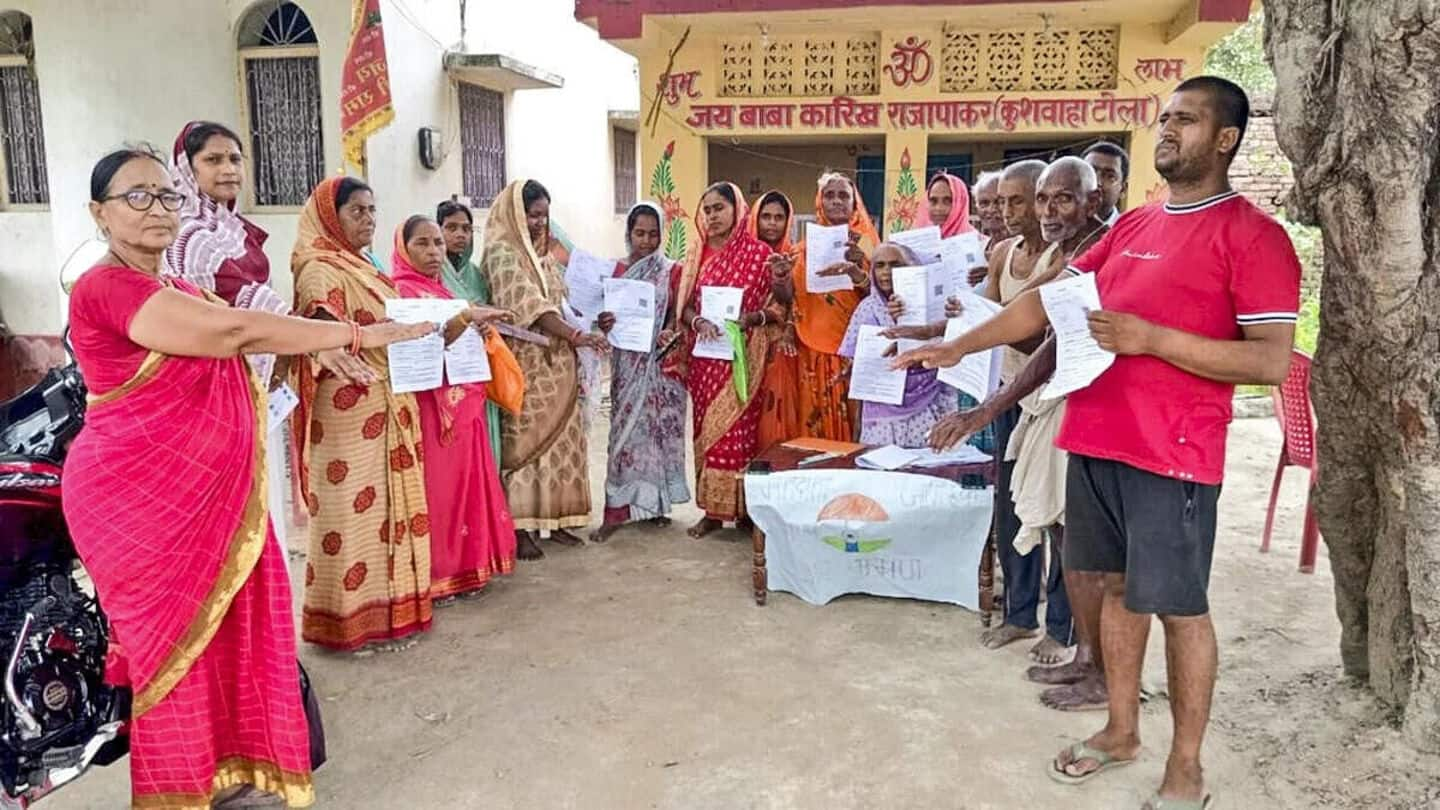
Why EC has removed 52L electors from Bihar's electoral rolls
What's the story
The Election Commission of India (ECI) has removed over 52 lakh names from the electoral rolls in Bihar during the ongoing Special Intensive Revision (SIR). The deleted names include 18.66 lakh deceased voters, 26.01 lakh who have permanently shifted constituencies, and 7.5 lakh with duplicate entries. An additional 11,484 electors were marked untraceable, constituting around 6.62% of Bihar's electorate.
Registration update
Nearly 1 lakh Booth Level Officers deployed across Bihar
The EC also said that as of June 24, Bihar had 7.89 crore registered voters. It said that 90.67% (7.16 crore) of electors submitted Enumeration Forms (EFs), with 90.37% (7.13 crore) digitized so far. To verify these details, the ECI deployed nearly one lakh Booth Level Officers (BLOs), four lakh volunteers, and 1.5 lakh Booth Level Agents (BLAs) from major political parties across the state.
Twitter Post
Check out the data here
#Facts revealed from #BiharSIR so far
— All India Radio News (@airnewsalerts) July 22, 2025
✅ 18 lakh deceased electors reported
✅ 26 lakh electors shifted to different constituencies, and
✅ 7 lakh electors enrolled at two places@ECISVEEP pic.twitter.com/3E17sl8QSr
Upcoming deadlines
Schedule for final electoral roll publication
The ECI will release the Draft Electoral Rolls on August 1, 2025. A month-long period from August 1 to September 1 will be given for public objections regarding any changes. The final electoral roll will be published on September 30, 2025. This revision is part of efforts to ensure a more accurate electoral process in Bihar ahead of upcoming polls.
SC
Petitions against the SIR
The EC has asserted that the revision is constitutionally mandated and necessary to ensure accurate and inclusive voter records, while opposition parties have criticized the timing and method of the effort, calling it "unconstitutional" and "anti-people." The opposition INDIA bloc has petitioned the Supreme Court, claiming that the modification could disenfranchise lakhs of voters, mainly migratory workers and marginalized communities, due to the short timeline and lack of available paperwork.
EC
11 documents not exhaustive
While hearing the petitions by opposition leaders, the SC had asked EC to consider Aadhaar cards, voter IDs and ration cards as acceptable proof of eligibility for inclusion in electoral rolls. But on Tuesday, the EC turned down the request, saying these documents do not meet the required standards for verifying eligibility. It also argued that the list of 11 documents, such as passports and birth certificates, that are currently being accepted is "illustrative and not exhaustive."